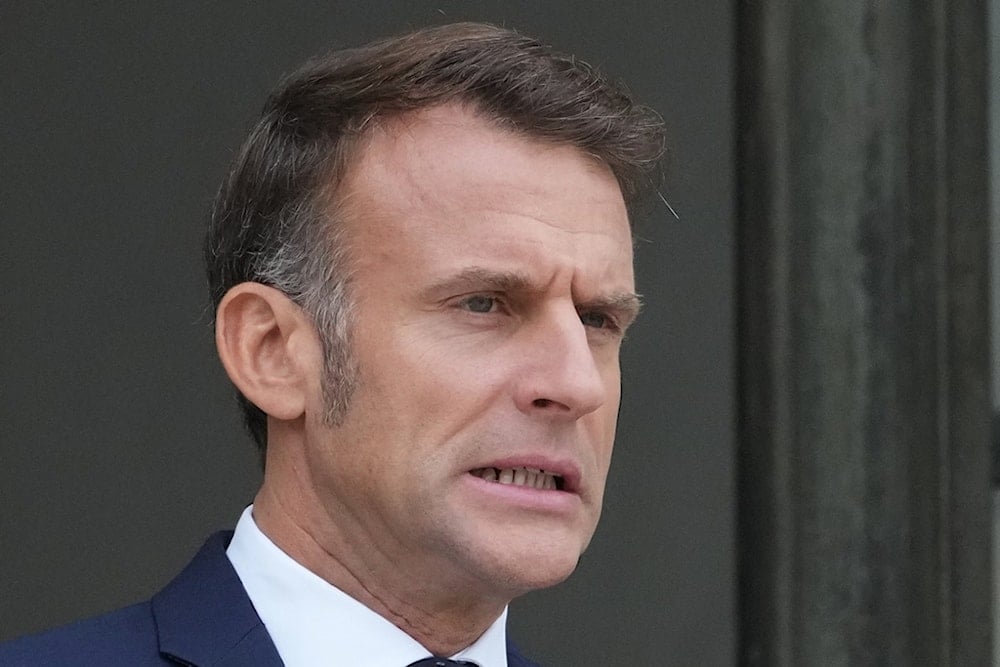France faces political freefall as Macron's popularity hits record low
French President Emmanuel Macron's approval rating has plunged to a record low of 14% amid mass protests, economic discontent, and political chaos.
-

French President Emmanuel Macron waits for Jordan's Crown Prince Hussein at the presidential Elysee Palace, Wednesday, Oct. 8, 2025, in Paris (AP)
French President Emmanuel Macron's popularity has collapsed to a new low, with just 14% of the French public voicing support, an Elabe poll released this week shows.
Equally telling, 82% say they have no confidence in him, and another 4% remain undecided. This marks the weakest standing since Macron took office and brings to mind the decline of François Hollande's presidency.
The figures come amid deepening political turmoil following the resignation of Prime Minister Sébastien Lecornu, who quit after serving less than 27 days in office. His government, formally constituted only hours before his departure, lasted just 14 hours in operation, the briefest in modern French history. The resignation has reinforced perceptions of a government in disarray and prompted renewed calls for Macron's own resignation or another dissolution of parliament.
Yet this crisis is more than institutional collapse. At its core lie unresolved fractures:
- The controversial pension reform, passed in 2023 via Article 49.3, remains deeply unpopular, and recent overtures to suspend or amend it have renewed tensions over France's social contract.
- The government's fiscal constraints strike at the heart of everyday life: austerity, public service cuts, and growing inequality add real pressure on vulnerable households.
- After last year's snap elections produced a fractured legislature, Macron has struggled to build stable coalitions, making leadership churn the new norm.
- At the same time, alternative voices, especially from younger generations, are redefining protest frameworks. The Bloquons tout movement, which aims for mass blockades and site occupations, has emerged alongside union-led strikes, fusing social media momentum with economic grievances.
Nationwide protests, strikes
The protest calendar is already dense. September 18 saw sweeping union-led mobilizations across sectors, followed by fresh nationwide strikes on October 2.
While participation dipped, the symbolic impact has stayed alive, even prompting the Eiffel Tower's closure during protests. Over 200 actions were registered across the country in early October. These events point to how social unrest has become a persistent feature of France's political landscape.
In this vacuum, the far right is gaining traction. According to the same poll, Jordan Bardella leads with 39% support, followed by Marine Le Pen at 35%, a shift that signals the growing potency of anti-establishment politics.
Analysts argue that Macron's disintegration of traditional authority is accelerated by structural contradictions: a president governing without a parliamentary base, social policies seen as out of touch, and protest energy migrating to newer forms. With markets wary, growth forecast weak, and trust evaporating, the presidency now faces a defining test.
Whether reform, dissolution, or resignation becomes the path forward, France appears poised for a reckoning.
Read more: French markets plunge as PM quits after just 12 hours in office

 3 Min Read
3 Min Read








